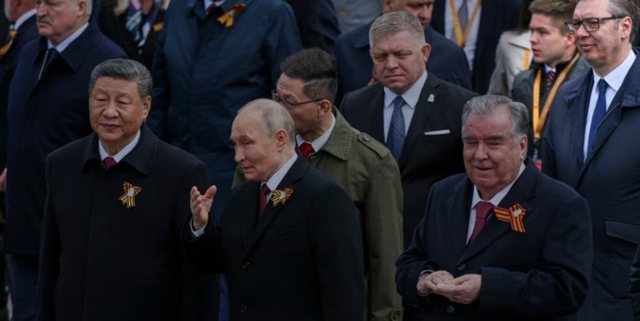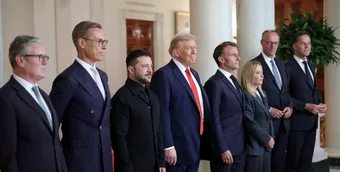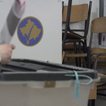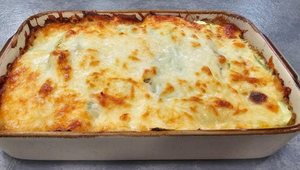
From Russia to Venezuela, REL analysis: Countries sanctioned in the West, "friends" in Serbia


Official Belgrade has for years maintained ties with regimes in Russia, China, Belarus, Venezuela and Iran, prompting the European Union (EU) to criticize it, but only through statements.
On Thursday, August 21, two announcements arrived that confirm this direction of Serbia's foreign policy.
Serbian President Aleksandar Vučić initially announced that a meeting of Serbian and Russian officials "at the highest level" would be organized soon, but did not provide further details.
If the meeting takes place, it would be the second of its kind this year, following Vucic's visit to Moscow in May, which prompted warnings from Brussels.
That same day, the Serbian head of state announced that he had had a telephone conversation with Venezuelan President Nicolas Maduro, whom the EU considers to lack the legitimacy of a democratically elected president due to electoral irregularities.
Vučić, however, called him a "great friend" of Serbia.
The EU has not responded to Radio Free Europe's request regarding the announcement of the meeting between Serbian and Russian officials, as well as Vučić's phone conversation with Maduro.
The position that Vučić's Serbia has in the international space can be understood if it is analyzed from the perspective of the key principles of Russia and China's foreign policy, which are summarized by the phrase: a multipolar world.
This is the assessment of Eric Gordy, professor of political sociology at the Department of Slavic and East European Studies at the University of London.
"This means that they are more oriented towards strengthening regional powers, rather than global ones. The aim is to dilute the power of the strongest economic states such as the US and European countries. This has also been promoted by Vučić and the right-wing parties in Serbia, when they speak of themselves as supporters of sovereignty," Gordi assesses.
In the "embrace" of Russia
Despite calls from Brussels not to travel to Moscow, the Serbian president participated on May 9 in the marking of Victory Day over fascism in World War II.
This was Vučić's first visit to Russia since it began its invasion of Ukraine in February 2022. According to the UN, the death toll has since passed 12,000.
Apart from Vučić, the only European officials at the Moscow parade were the pro-Russian Prime Minister of Slovakia, Robert Fico, and the President of Belarus, Aleksandar Lukashenko.
Vučić also met with Russian President Vladimir Putin and thanked him for his "great support" for official Belgrade's policy on Kosovo.
Russia is among the countries that have not recognized Kosovo's independence, which was declared in 2008.
BE-ja, pas vizitës së Vuçiqit në Moskë, deklaroi se “shpreh keqardhje të thellë” për udhëtimin e udhëheqjes serbe në Rusi dhe se Serbia duhet ta “bindë” Brukselin për “orientimin e saj strategjik drejt BE-së”.
Që nga maji, nga Moska kanë ardhur mesazhe të paqarta për Beogradin – nga kritikat për pretendimet se armët e prodhuara në Serbi përfundojnë në Ukrainë, e deri te mesazhe mbështetjeje për shtypjen e “revolucioneve me ngjyra”, siç i quajnë autoritetet serbe dhe ruse protestat antiqeveritare që po zgjasin prej nëntë muajsh.
Edhe pse Serbia në OKB ka dënuar disa herë pushtimin rus dhe ka mbështetur integritetin territorial të Ukrainës, përfshirë edhe territoret e pushtuara, ajo mbetet një nga të paktat shtete evropiane që nuk i është bashkuar sanksioneve perëndimore kundër zyrtarëve të Kremlinit.
“Miqësi prej çeliku” është shprehja që shpesh përdorin zyrtarët serbë për të përshkruar marrëdhëniet me Republikën Popullore të Kinës.
Presidenti Vuçiq e quan homologun e tij kinez, Xi Jinping, “mik të madh dhe vëlla”.
Në fund të korrikut, Vuçiq njoftoi se më 3 shtator do të takohet me presidentin kinez në Pekin.
Takimi i mëparshëm mes tyre u zhvillua në maj në Moskë, gjatë paradës së Ditës së Fitores.
Xi Jinping vizitoi për herë të fundit Beogradin në maj 2024, ku u prit nga mijëra qytetarë me flamuj të Serbisë dhe Kinës.
Marrëdhëniet mes dy shteteve shihen në shumë projekte infrastrukturore të kompanive kineze në Serbi, përfshirë edhe rindërtimin e hekurudhës Beograd-Budapest, e cili pati pasojë tragjike vdekjen e 16 personave pas shembjes së një pjese të çatisë së Stacionit Hekurudhor në Novi Sad.
Për shkak të intensifikimit të bashkëpunimit politik dhe ekonomik me Kinën, Beogradi zyrtar është kritikuar dhe paralajmëruar disa herë nga SHBA-ja dhe BE-ja, ku Serbia synon anëtarësimin.
Përkrah autokratëve në Venezuelë dhe Bjellorusi
“Pse të mos shkoj në Venezuelë? Serbia nuk është vend që merr urdhra nga jashtë”, ishte përgjigjja e kryetares së Kuvendit të Serbisë, Ana Bërnabiq, më 15 janar, kur u pyet nga REL-i për praninë e saj në inaugurimin e Nikolas Maduros në Karakas disa ditë më herët.
Komisioni Evropian deklaroi se Serbia duhet të përmbahet nga veprimet që bien ndesh me politikën e jashtme të BE-së.
SHBA-ja ka vendosur sanksione ndaj Venezuelës që nga viti 2006, të cilat u zgjeruan në janar 2024.
Maduro akuzohet nga Uashingtoni për korrupsion, trafik droge dhe shkelje të demokracisë e të drejtave të njeriut.
Ai shpalli fitore në zgjedhjet presidenciale të korrikut 2024, të cilat opozita i konsideroi të manipuluara, duke organizuar protesta masive në të gjithë vendin.
Mes pak zyrtarëve botërorë që e uruan Maduron për mandatin e tretë ishte edhe presidenti Vuçiq.
Njëjtë, kur presidenti autoritar i Bjellorusisë, Aleksandar Lukashenko, shpalli mandatin e tij të shtatë në fillim të vitit 2025 – zgjedhje të cilat Perëndimi i konsideroi të manipuluara – një nga urimet e para iu dërgua nga Beogradi.
Former Deputy Prime Minister Aleksandar Vulin, known for his close ties to the Kremlin and Minsk, congratulated Lukashenko as a "friend of Serbia."
Belarus is under EU sanctions for its role in the Russian invasion of Ukraine. Serbia only partially joined those sanctions.
Erik Gordi emphasizes that it would be incorrect to say that Serbia necessarily cultivates proximity to autocratic regimes.
"Again, the level of interest is more related to economic reasons. Huge profits come from the sale of weapons and armaments around the world, mainly to countries that were once clients of Yugoslavia," says Gordi.
Following the start of the Israel-Iran conflict, on June 23, Vučić declared that Serbia had suspended arms exports.
Since 2022, official data on arms exports from Serbia have not been published, although the law provides for it.
In late June, Russia's Foreign Intelligence Service accused Serbia of its ammunition ending up in Ukraine via NATO countries. Belgrade has repeatedly denied this, saying it has no control over the final destination after the weapons are sold to third countries.
This issue also brought Serbia's relations with Iran into the spotlight.
Although official Belgrade has claimed neutrality in the Israel-Iran conflict, trade data shows a greater bias towards Tel Aviv.
Again, Serbia has repeatedly failed to comply with EU decisions on sanctions against Iran, both for nuclear activities and human rights violations.
Erik Gordi links this to the "Jadar" lithium mining project by the Australian company "Rio Tinto", which has caused major protests in Serbia.
According to him, this project cannot be realized in Europe due to environmental standards and public resistance, which is why the EU often "turns a blind eye" to Vučić's violations of democratic standards.
The European Commission, on June 4, 2025, included the "Jadar" project among 13 strategic projects with critical raw materials, despite the uncertainty about its continuation.
The ISAC Fund's analysis shows that Serbia's compliance with EU foreign policy statements was 59% in 2024 – more than a year earlier, but still the lowest among candidate countries in the Western Balkans.
However, contacts with several criticized regimes have not cost Serbia, at least so far, serious pressure from the EU. /rel

The Ukraine summit that ignored the tough questions
ideas
top
Alfa recipes
TRENDING 
services
- POLICE129
- STREET POLICE126
- AMBULANCE112
- FIREFIGHTER128




























